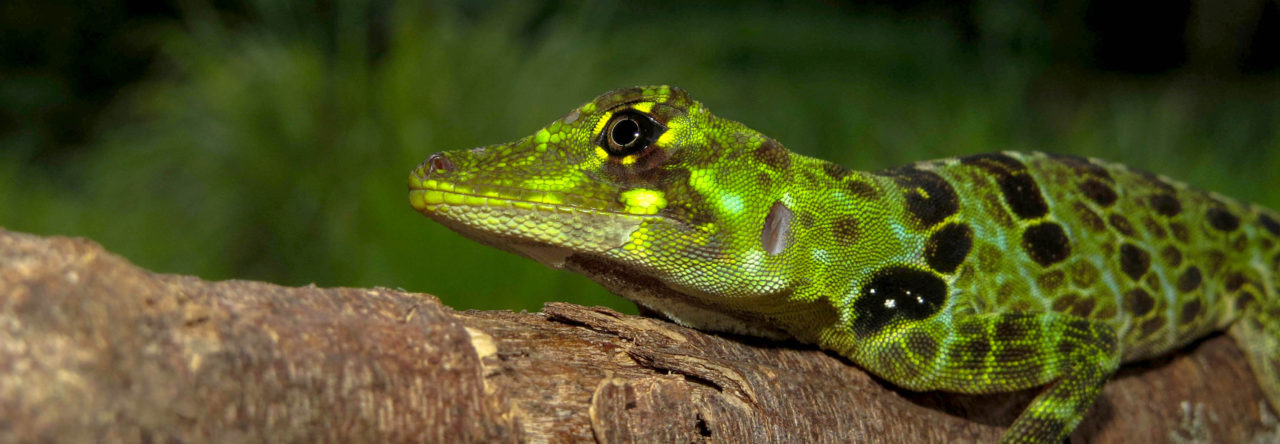From the pages of Copeia: The Henry S. Fitch Award for Excellence in Herpetology is given annually to an individual for long-term excellence in the study of amphibian and or reptile biology. In addition to consideration of the research portfolio, the committee also considers the educational and service impacts of the individual’s career. The award has been given annually since 1998 and like previous winners of the award this year’s Fitch Award winner has a long career that focuses on ecology and evolution and he has directed his attention on lizards. The Fitch Committee was chaired by Maureen Kearney in 2010. Whitfield Gibbons and Jonathan Losos served as committee members and were elected by the ASIH board of governors. This year the committee had to select from among several strong nominations and their deliberations were a challenge. According to the member that nominated this year’s winner, our 2010 awardee is one of the greatest zoologists of our time. His contributions to theoretical ecology and evolutionary biology are immense; he is the author of six Citation Classics. The publication record of the 2010 Fitch winner more than demonstrates long-term excellence for study in the field of herpetology. The curriculum vitae of this year’s Fitch awardee is impressive for its depth and its breadth, and he early on defined the “fundamental questions” most ecologists ask of their organisms. Several ecological themes emerge when one examines his body of peer-reviewed publications: foraging ecology, foraging theory, resource partitioning, niche quantification, spatial ecology, population biology, competition, niche shifts, island ecology, effects of predators on prey, food web dynamics, and effects of hurricanes on island taxa. While the vast majority of scientific papers focus on lizards, our awardee has also published extensively on birds, spiders, and even plants in his attempt to understand the fundamental ecology of organisms. This year’s winner was the first chairperson of the Department of Evolution and Ecology at UC Davis and one of the youngest scientists ever elected to the National Academy of Sciences.
The 2010 Fitch awardee has conducted research in Asia and the Pacific region including New Guinea, New Caledonia, Malaysia, Fiji, New Zealand, and the Solomon Islands. He has also worked extensively in Australia, the West Indies, and in the United States.
The 2010 Fitch award winner received his B.A. and Ph.D. from Harvard University. He was hired as an Assistant Professor at his alma mater, but moved to the University of Washington before he joined the faculty at U.C. Davis where he is now a Professor of Biology and Environmental Studies. This year’s awardee belongs to the ASIH, the SSAR, and the Herpetologists’ League and several other professional societies. In addition to his election to the National Academy in 1984, he was one of the 250 “most cited” authors listed in the 1984 Science Citation Index, and became an Elective Member of the American Ornithological Union in 1985. He was awarded the MacArthur Prize from the Ecological Society of America in 1986. He was named to the American Academy of Arts and Sciences in 1991, was a Guggenheim Fellow from 1992–93, and following that was a Faculty Research Lecturer at UC Davis in 1994. He is one of the original members of the highly cited researchers database that was compiled in 2003.
I was delighted when I was asked to present the award this year because I grew up reading his papers and having my own ecological investigations influenced by his scholarship. It is my pleasure to introduce the 2010 winner of the Henry S. Fitch Award for Excellence in Herpetology, Thomas W. Schoener.
Award presented by Maureen A. Donnelly for Maureen A. Kearney, Chair, 2010 Fitch Award Committee.
- New Article on Anolis roosevelti and the Question of Its Survival - March 16, 2024
- Lizard Diving Champions: Trading Heat For Safety Underwater - March 15, 2024
- Do Large Brown Anoles Get the Most Mating Opportunities? - January 6, 2024



Leave a Reply